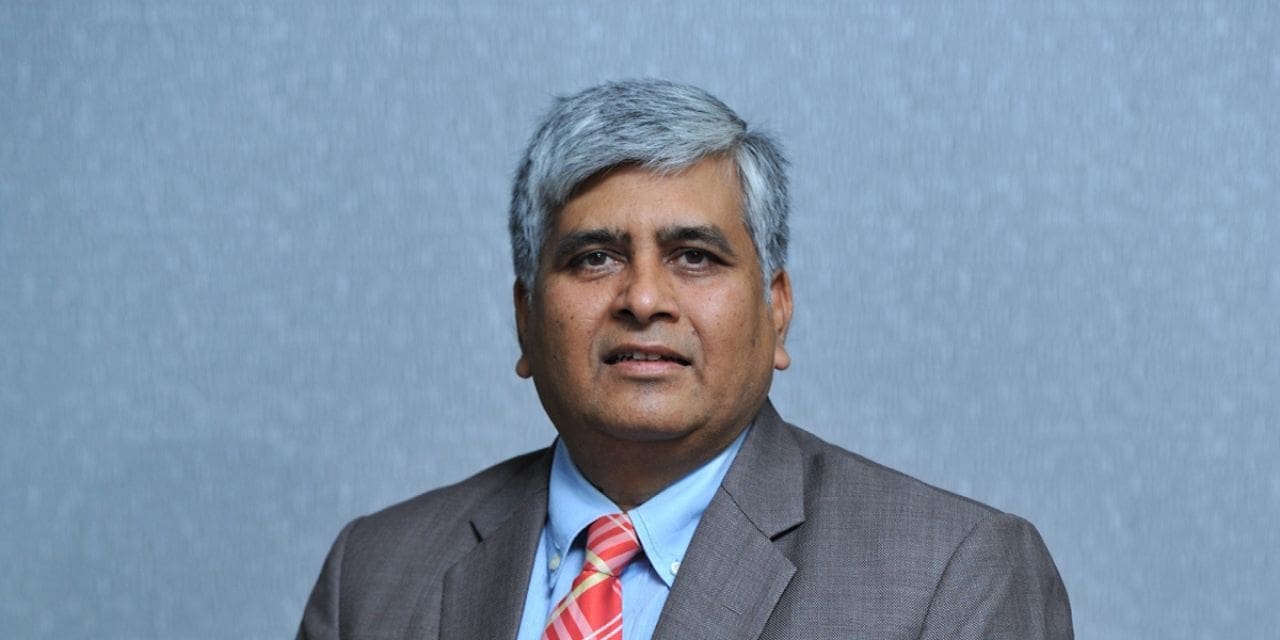Sangam India, today is one of the top 5 exporters of Denim from India, and more than that it effectively adopted a zero-water discharge process from effluent treatment plants which is crucial in reducing industrial pollution, says Dr. S N Modani, Founder & Managing Director, Sangam India Ltd.
Dr. Modani holds a PhD in strategic management practices for a sustainable future, along with a Masters Science (M.Sc),with honours in Chemistry, as well as an MBA qualification along with a Post-Graduate Diploma in Cement Technology from NCBM, Faridabad. He has a rich experience in the textile industry, having previously held positions in key organisations such as Chairman at The Rajasthan Textile Mills Association, Director at Indian Cotton Mills Federation,President, Mewar Chamber of Commerce & Industry and Vice President, Rajasthan Chamber of Commerce &Industry.Dr. Modani’s stints include association with some of India’s leading industry bodies like FICCI.
TVC: Tell us about the denim journey of your company – from its inception to its current status.
Modani: Our humble beginnings date back to 1984, when we started with 8 weaving machines and today have become one of the foremost producers in PV dyed yarn, cotton and OE yarn also ready-to-stitch fabric. Looking at India’s fast-growing denim sector, both internationally and nationally, we took a strategic business decision to launch the vertical in 2007 with a single denim line, becoming the first company to do so in Bhilwara. We currently have a capacity of producing 4 million meters per month and export 50% of our capacity to more than 20 nations such as Colombia, Mexico, Argentina, Bangladesh and Chile to name a few.
TVC: A few years ago, denim was hit by overcapacity & dull demand. What do you think is the situation now – domestically as well as internationally.
Modani: As per the Ministry of Commerce, Denim exports were at $316 million in the year 2016-17, recording a fall of 11% from the previous year. The fall in exports was despite the industry witnessing the massive installation of denim plants from 2014 – 2019. However, the Indian denim mills have shown strong growth when it comes to denim exports which have led to a certain level of stability in the domestic markets as well. The domestic denim fabric consumption in 2021 was 750-800 million meters growing at an annual rate of 12% per annum. Currently, the situation is normal with no notable supply-demand imbalance on either the domestic or global levels.
TVC: Any backward or/and forward integration plans? Give us details.
Modani:We already have Backward Integration. The majority of our yarns are already produced in-house courtesy of our open-end rotors, ring spinning, and texturizing machine.
TVC: How does your company contribute to green technology and sustainability?
The textile industry had a significant negative influence on the environment due to the additional consumption of natural resources. Taking cognizance of our environment, we at Sangam India Limited, have effectively adopted a zero-water discharge process from effluent treatment plants which is crucial in reducing industrial pollution. Additionally, we use the Effluent treatment plants (ETPs) for wastewater management that help recycle more than 90% of the water used during the manufacturing process. The waste is sent to fuel the furnace where it is turned into a cake and delivered to a cement manufacturing facility. We are also generating solar power to reduce our dependence on non-renewable energy.
TVC: What is your company’s exporting status in denim? Can you briefly trace its growth over the years?
Modani: Sangam India, today is one of the top 5 exporters of Denim from India. As mentioned earlier, we supply to over 20 countries globally and had exported denim fabric worth approximately USD 45 million in the previous financial year.
TVC: What is your company’s denim dream in terms of production, turnover and future plans?
Modani: If I talk about our vision for the future, we want to consistently grow our production capacity of denim fabric responsibly and sustainably. We plan to manufacture over 480 million meters of denim fabric this year with a key focus to improve this number year on year. We would also be constantly investing in the latest state-of-the-art machinery which helps us in increasing our manufacturing pace, thereby enabling us to expand and supply to more international countries in the coming 5 years.
TVC: What is your view on the future of denim in India?
Modani: According to a recent study published by Research & Markets, the global denim market today stands at close to USD 65 billion which would grow to about USD 87 billion by 2027. I believe India would be at the forefront of this growth mainly due to the easy availability of cotton and yarn at a local level. Add to that, consistent growth in the domestic market, favorable government policies and a robust ecosystem of manufacturing know-how will make sure that India is one of the largest manufacturers of denim fabric globally.
FOR MORE INTERVIEW SUBSCRIBE OUR MAGAZINE: https://textilevaluechain.in/latest-textile-magazines/subscription

